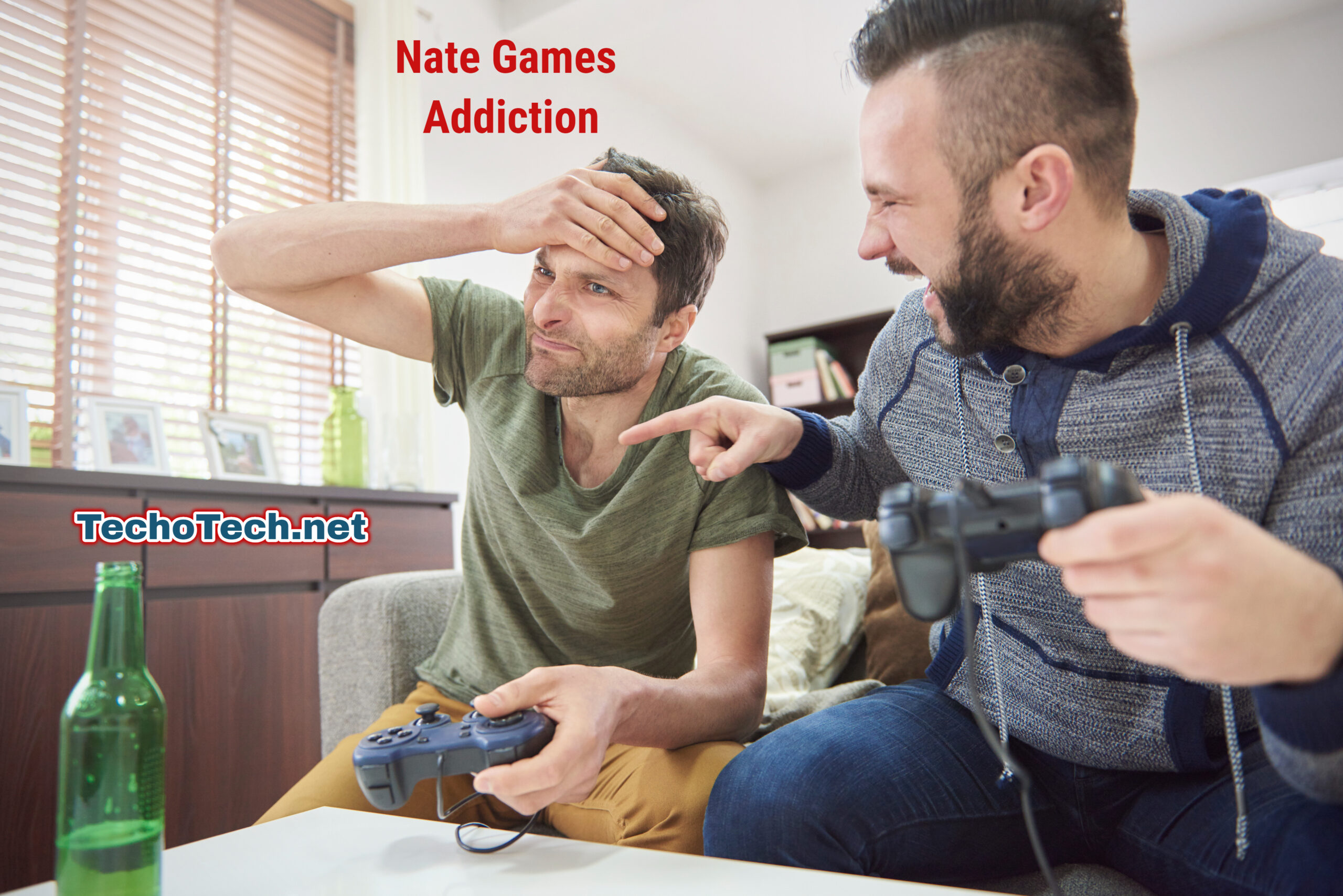Outline
Are you an ardent gamer or just a casual player? If so, you may have heard of “Nate Games Addiction.”. What is it, and how can you test and enhance your gaming skills? This blog post will explain Nate Games’ addiction and offer ideas on how to improve your gaming abilities.
What is a Nate Games addiction?
Online gamers are dubbed Nate Games Addiction. It refers to obsessive video game use that can cause job or school neglect, damaged relationships with friends and family, and even physical health issues. Some people become addicted to video games, affecting their daily lives.
Nate Games Addiction resembles drug abuse and gambling. It involves a tremendous yearning for video games that the person struggles to control while recognising its detrimental effects. This addiction mostly affects teens and young adults, who are more prone to addiction.
Signs of Nate Games Addiction
Everyone enjoys gaming differently; however, there are several typical indicators or symptoms of Nate Games Addiction:
1. Losing track of time
Do you often lose track while playing video games? If hours feel like minutes when playing, you may have trouble regulating your gaming addictions.
2. Neglecting other responsibilities
Have you neglected school, work, or housework to play video games? Possible Nate Games Addiction is a red flag.
3. Isolation from friends/family
Invite people over for game evenings, but staying away from social activities is harmful. If you’d rather play games at home than with family, you may need to change your behavior.
4. Mood changes
Do you become angry without video games? Nate Games: Addiction withdrawal symptoms may be present.
5. Physical health issues
Excessive screen time can cause eye strain, migraines, neck discomfort, and carpal tunnel syndrome. If you experience these symptoms, investigate whether your gaming habits are to blame.
How to Test Your Gaming Competency
If you like video games but worry about addiction, you can measure your gaming skills without letting them spiral out of hand. Tips for testing your gaming talents while keeping a healthy balance:
1. Set limits: Setting daily or weekly limits is the best approach to assessing your gaming control. Limit your gaming to 2 hours per day or 10 hours per week.
2. Take breaks: Your eyes and body need regular rests from games. Use this break to read or wander outside.
3. Diversify your interests: Having a pastime that provides you joy and relaxation is excellent, but you should also extend your interests outside of gaming.
4. Play multiplayer games: Instead of playing alone, play with friends or family in a multiplayer gaming room.
5. Be active: Inactivity raises the chance of future health problems.Exercise is also recommended for healthy gamers to avoid physical health difficulties caused by prolonged gaming.
How to Enhance Your Gaming Competency and Capacity
There are techniques to improve your video game abilities outside of testing them. These strategies can help you improve your gaming skills:
1. Practice: Like any ability, practice makes perfect. Playing a game more improves your skills.
2. Hand-eye coordination drills: Constant practice improves hand-eye coordination, but obsessing over “professional” precision may lead to Nate Games addiction.
3. Know the game inside out: Master the game’s mechanics, techniques, and rules to succeed. Online lessons and guidelines can help you improve your game.
4. Play against stronger opponents: Playing against a much superior opponent encourages you to think outside your comfort zone, improving your talents.
5. Take part in competitions/tournaments: E-sports tournaments may help you improve technique and strategy while having fun.
Conclusion
There’s nothing wrong with playing video games for fun or leisure, but it’s important to avoid addiction. One must regularly examine their gaming competence and capacity to strike a balance between playing games for fun and letting them overrun their lives. Video gamers can beat Nate Games addiction, increase their enjoyment, and avoid personal issues by setting limits, diversifying interests, actively taking breaks from gameplay, embracing exercise routines, and consistently practicing the tips listed above.


[…] games also improve problem-solving, hand-eye coordination, and response time. It also helps with multitasking, making […]